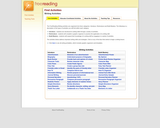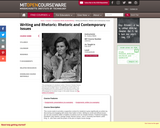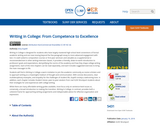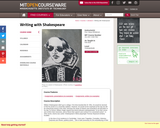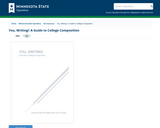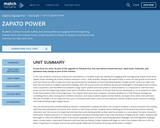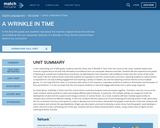
In this culminating unit of fifth grade, students read the classic text A Wrinkle in Time. Over the course of the novel, students explore the nuances of good versus evil and how ultimately unconditional love can overpower darkness and hate. Students will also experience the power of believing in oneself and trusting those around you, by watching the main character’s self-confidence evolve over the course of the novel. This novel is the first science fiction novel that students are exposed to over the course of the curriculum. Exposing students to science fiction is important for not only building engagement and reaching a variety of readers, but also for exploring common themes across multiple genres. It is our hope that this novel, in connection with others in the sequence, empowers students to believe in themselves and the power of love and kindness. It is also our hope that this unit inspires students to read and engage with books from a wide range of genres.
As noted above, A Wrinkle in Time is the first science fiction novel that students read and analyze together. Therefore, over the course of the novel, students will be pushed to notice and analyze different genre features. In particular, the multiple settings are integral for both the development of plot and the suspense and intrigue common in science fiction. As a result, students will have multiple opportunities to compare and contrast the different settings. In this unit, students will also spend a lot of time analyzing and noticing author’s craft, particularly the use of sentence structure and syntax as a way to develop tone and emotion. Paired with the graphic novel version of the text, students will also compare and contrast the way Madeleine L’Engle uses description and voice to develop a scene versus how the graphic novel develops a scene. Since this is the culminating unit of the year, students will also review characterization, theme, using context clues to figure out the meaning of words, and plot.
- Subject:
- Composition and Rhetoric
- English Language Arts
- Language, Grammar and Vocabulary
- Reading Foundation Skills
- Reading Literature
- Speaking and Listening
- Material Type:
- Assessment
- Homework/Assignment
- Lesson Plan
- Unit of Study
- Provider:
- Match Fishtank
- Provider Set:
- Fishtank ELA
- Date Added:
- 01/01/2017
